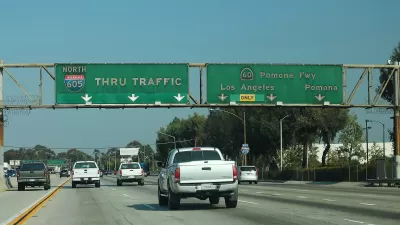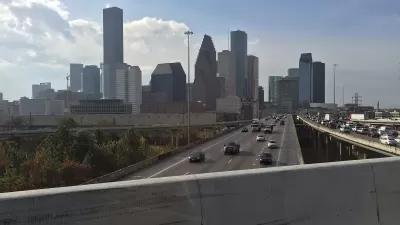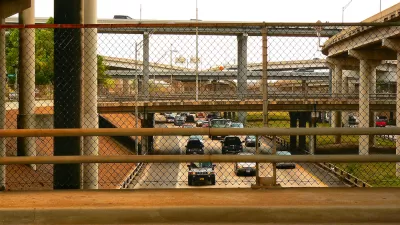A tent city occupation in Atlanta is among several recent actions in cities around the country. Residents fearing displacement at the hands of publicly supported private development are organizing, and running for office, against it.
If you’re up-to-date on your gentrification news, you may have heard that residents of four historically African-American neighborhoods in Atlanta are in the midst of an occupation of Turner Field—the former home of the Atlanta Braves.
The organized resident groups have demanded, since 2013 when the baseball team announced it was leaving, to be considered and included in the planned development of 67 acres of commercial and housing on the land. So far, they’ve reported little to no luck in getting a community benefits agreement considered by the city or the developers, and they have escalated their protest to erecting a tent city on the property. Residents have been camped on the property since April 1 demanding that the proposal be acknowledged and addressed.
In a project called the “deal of the year” by the Atlanta Business Chronicle, the City of Atlanta sold the land to Georgia State University (GSU) and the Carter, Oakwood Development and Healey Weatherholtz joint venture last year. Two resident groups, the Turner Field Community Benefits Coalition and Housing Justice League, have organized community members from the historic towns of Summerhill, Peoplestown, Mechanicsville, and Pittsburgh to push back against planned development they say has purposely excluded them.
“We didn’t make this decision to pitch tents lightly,” says Peoplestown resident Columbus Ward in a recent press release. “We have families, we have jobs, we have responsibilities. But at the end of the day, Carter, GSU, and the city are threatening the very existence of our neighborhoods. This is a fight for our right to remain and thrive. We refuse to be seen as commodities. We are real people.”
This community action is but one among several in cities around the country where longtime residents fear displacement at the hand of publicly supported private development, and have begun organizing against it.
FULL STORY: A Community Benefits Proposal Is Ignored. Is Displacement Far Behind?

Alabama: Trump Terminates Settlements for Black Communities Harmed By Raw Sewage
Trump deemed the landmark civil rights agreement “illegal DEI and environmental justice policy.”

Planetizen Federal Action Tracker
A weekly monitor of how Trump’s orders and actions are impacting planners and planning in America.

Why Should We Subsidize Public Transportation?
Many public transit agencies face financial stress due to rising costs, declining fare revenue, and declining subsidies. Transit advocates must provide a strong business case for increasing public transit funding.

Understanding Road Diets
An explainer from Momentum highlights the advantages of reducing vehicle lanes in favor of more bike, transit, and pedestrian infrastructure.

New California Law Regulates Warehouse Pollution
A new law tightens building and emissions regulations for large distribution warehouses to mitigate air pollution and traffic in surrounding communities.

Phoenix Announces Opening Date for Light Rail Extension
The South Central extension will connect South Phoenix to downtown and other major hubs starting on June 7.
Urban Design for Planners 1: Software Tools
This six-course series explores essential urban design concepts using open source software and equips planners with the tools they need to participate fully in the urban design process.
Planning for Universal Design
Learn the tools for implementing Universal Design in planning regulations.
Caltrans
Smith Gee Studio
Institute for Housing and Urban Development Studies (IHS)
City of Grandview
Harvard GSD Executive Education
Toledo-Lucas County Plan Commissions
Salt Lake City
NYU Wagner Graduate School of Public Service





























